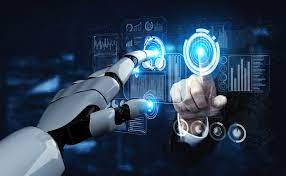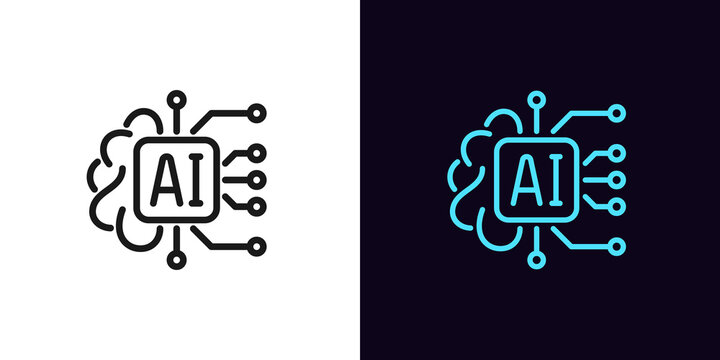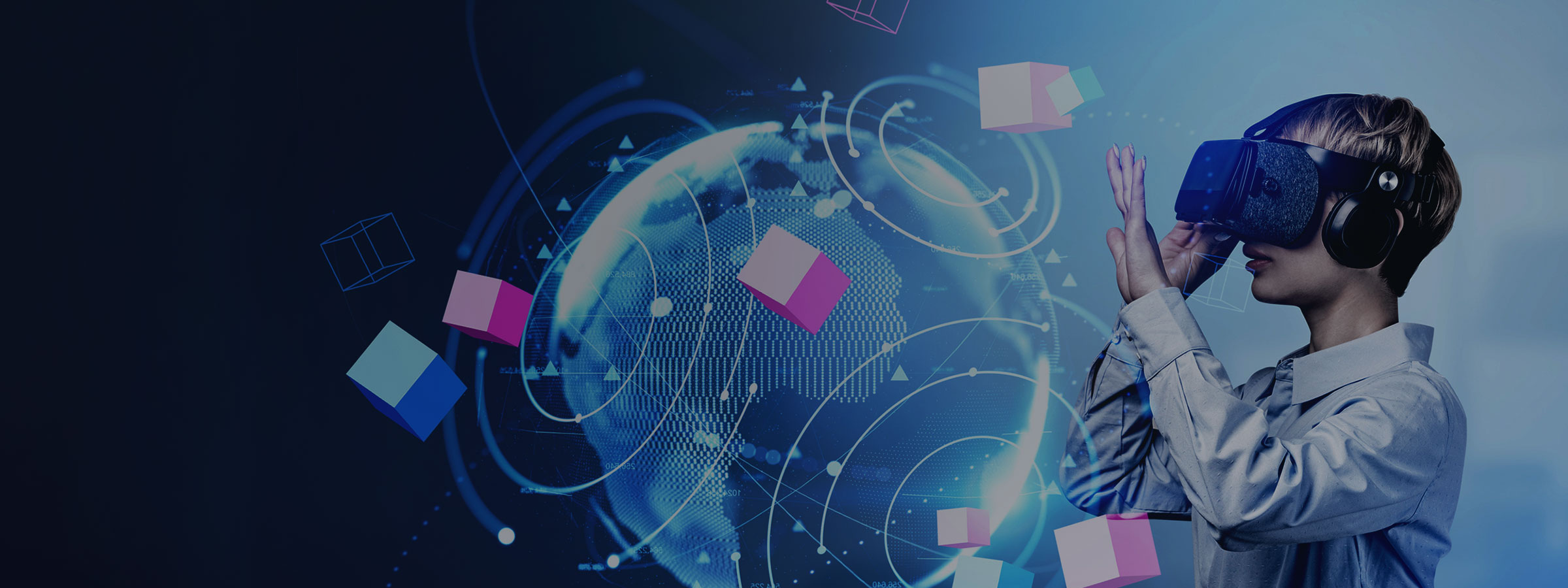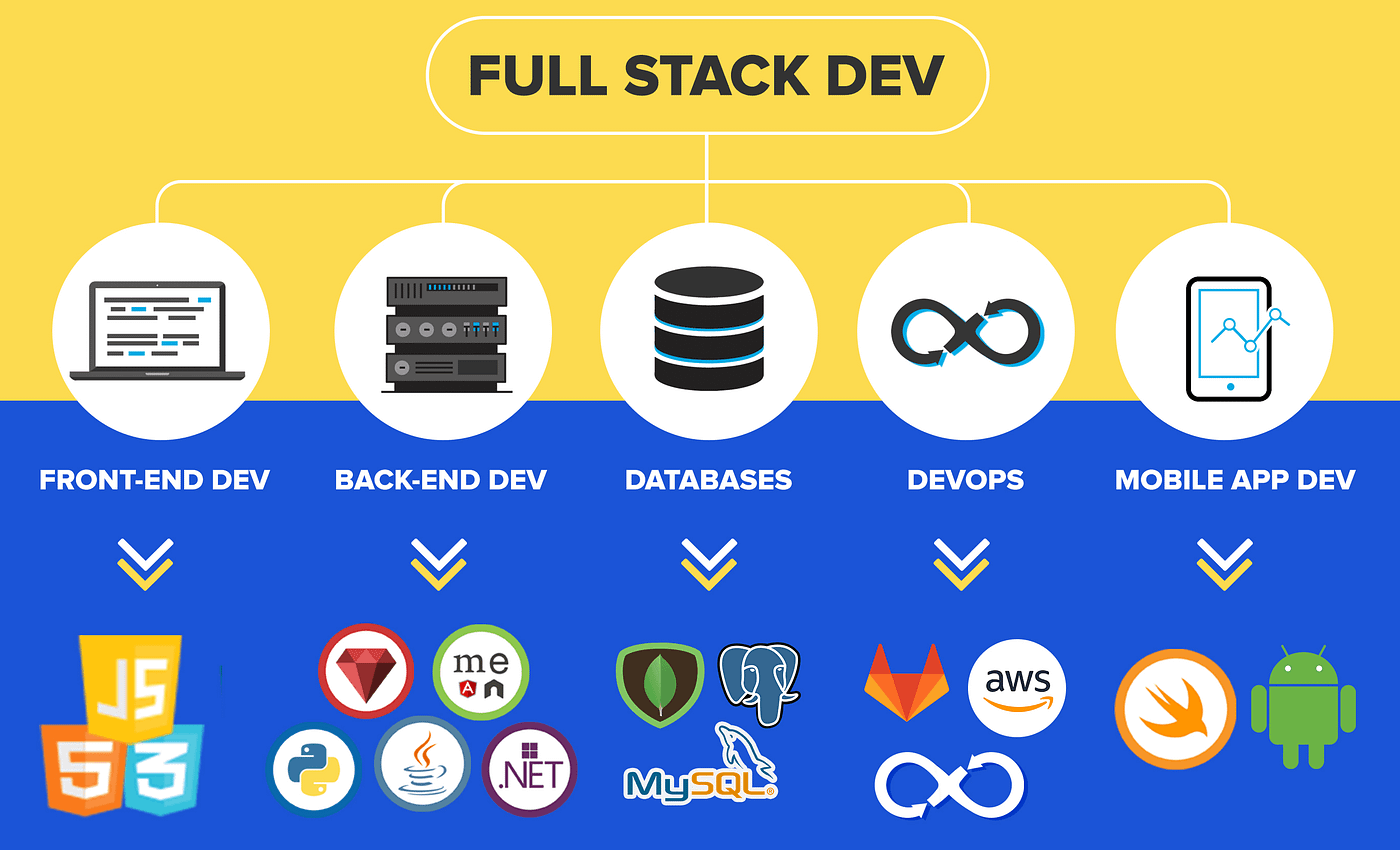The Development of Artificial Intelligence :
The way AI affects computers has a part in its impact on technology. With artificial intelligence (AI), computers can leverage vast quantities of data and apply their acquired knowledge to quickly arrive at the best conclusions and make decisions in a fraction of the time it would take for humans upcoming technology.
Since then, artificial intelligence (AI) has helped with tasks like modeling human speech and sequencing RNA for vaccines. These applications of AI rely on model- and algorithm-based machine learning and increasingly emphasize perception, reasoning, and generalization, with advancements such as these.
Which Sectors Will AI Affect In Artificial Intelligence?
AI will most likely have an impact on the following industries:
- AI will probably revolutionize schooling at all levels. Training and instructional materials will be provided to students based on their individual needs. AI will also choose the best teaching methods according to each student’s unique learning preferences. The educational system might hardly exist by 2028.

- It is probably going to become a common tool used by physicians and physician assistants who perform diagnostic work. The general public should anticipate a rise in the number of correct medical diagnoses. However, the delicate nature of patient information and the difficulty in understanding the regulations that safeguard it are also likely to result in an even more convoluted legal landscape for medicine and higher operating expenses for the future of artificial intelligence.
What is the future influence of AI?
- Education : Instructions. AI is likely to revolutionize education at all levels. Training and learning materials will be provided to students based on their individual needs. AI will also select the best teaching methods based on each student’s unique learning preferences. In 2028, the education system may barely exist.
- Health care : AI is likely to become a common tool used by doctors and medical assistants who perform diagnostic work. The general public should expect an increase in the number of correct medical diagnoses. However, the sensitive nature of patient information and the difficulty in understanding the regulations that protect it are likely to lead to an even more complex legal landscape for medicine and higher operational costs artificial intelligence and future of work.
- Finance : Sophisticated chatbots and financial advisors will be able to communicate with customers efficiently on a variety of common interactions, such as credit score monitoring, fraud detection, financial planning, insurance matters, and customer service, thanks to the combination of machine learning and natural language processing. Large investors will also benefit from the development of more intricate and quickly implemented investment strategies thanks to artificial intelligence technologies.
- Low : Over the next five years, we should expect a decline in the number of small and medium-sized legal firms, as jobs that used to require ten to twenty lawyers will now be completed faster and cheaper by small teams of one to three people working with AI systems. Chatbots can already provide basic legal summaries and write contract clauses when given the right instructions. If AI research continues at its current pace, as it has over the past few years, there could be a 25% or greater reduction in the number of human lawyers in the United States by 2028.
- Transportation : In the near future, more autonomous vehicles will be in private and commercial use. From the cars many of us drive to work, to trucks hauling goods down the highway, to spacecraft carrying people and cargo to the moon, autonomous vehicle transportation will likely be the most dramatic example of our arrival in the age of AI, the future of artificial intelligence.
What is the future influence of AI ?
Speed of life : The shift that many people in society will notice the most is that interactions with big institutions will happen more frequently. Businesses, governments, and organizations that interact with huge numbers of people regularly will be forced to include AI in their decision-making processes as well as their public and consumer-facing engagements. A lot faster decision-making will be possible for these organizations thanks to AI. Life will feel faster to all of us as a result upcoming technology.
The end of confidentiality : Strong AI systems will also challenge society’s ethical commitments, especially about privacy. AI systems will likely learn far more about each of us than we do about ourselves. Over the past 50 years, new technologies have already put our dedication to privacy protection to the test. As the cost of accessing our data decreases and more sophisticated algorithms that can analyze large volumes of data proliferate, we will likely discover that society’s decision to protect privacy was driven more by a technological barrier than by moral conviction.
Thicket of AI law : Additionally, we should anticipate a significantly more complex regulatory framework for businesses utilizing AI. governments are currently attempting to control the application of artificial intelligence at various levels, from local to national to international. We may anticipate a bewilderment of AI laws in the US alone as local, state, and federal government agencies create, carry out, and start enforcing new laws. It is highly likely that the European Union will unveil its much-anticipated artificial intelligence law in the upcoming six to twelve business quarters. Consequently, over the next five years, there will be a major increase in the legal complexity of conducting business upcoming technology and the future of artificial intelligence.
Human-AI teaming : A large portion of the public will anticipate that, rather than replacing human labor, corporations and the government would utilize AI to supplement human intelligence and experience, or to work in tandem with one or more humans to accomplish a task. One of the effects of artificial intelligence, which originated as a concept in science fiction tales that date back centuries, is that the clichés of the genre—most notably, the dramatic depiction of AI as an existential threat to humans—have been deeply ingrained in our collective consciousness. Keeping humans involved in any process that is greatly impacted by AI or working collaboratively with them will be essential to controlling the ensuing dread of AI that permeates society, artificial intelligence and the future of work.
HOW AI WILL CHANGE WORK
- At the moment, internet giant and AI powerhouse Amazon’s warehouses handle picking and packing by humans, but that is about to change. More than 100,000 robots are active within the facilities.
- Similar to Lee, Mohit Joshi, president of Infosys, told the New York Times that “people want to hit very big numbers.” Their previous staff reduction goals ranged from five to ten percent, and they were progressive. They are now saying, “Why can’t we do this with the one percent of people we have?”
- “Investing heavily in education to retrain people for new jobs is one of the absolute prerequisites for artificial intelligence to be successful in many [fields],” stated Klara Nahrstedt, director of school coordinated science laboratories and computer science professor at the University of Illinois at Urbana-Champaign.
- People need to learn about programming as if they were learning a new language,” he stated. It will simply get harder in the future if you don’t know how to programme or code. “And they need to do it as soon as possible because that’s really the future.
EARLY AI’S FUTURE : Mendelson says that two areas are seeing some of the most exciting AI research and experiments that will have an impact shortly: generative adversarial networks, or GANs for short, which enable computer algorithms to generate rather than just judge by pitting two networks against each other, and “reinforcement” learning, which works with rewards and punishments instead of labeled data. In the first, the capabilities of Google DeepMind’s AlphaGo Zero are demonstrated; in the second, an original image or sound is produced by drawing on knowledge about a certain subject, such as celebrities or a particular genre of music, the future of artificial intelligence.
Predictive information allows for the prescription of specific policies and guidelines. For instance, sensors on automobiles that transmit information about the state of traffic could anticipate future issues and improve vehicle flow. She stated, “This is by no means perfect yet.” It’s still quite young. But in the future, it will be a quite important upcoming technology.
The use of AI in HRM in the future-
The upcoming trend in human resource management is going to be cognitive computing. It will alter our hiring, onboarding, and retention practices.
Automating regular HR tasks like candidate screening, placement, and performance review is possible with artificial intelligence in HR artificial intelligence and future of work.HR professionals’ workload can be minimized by using chatbots and virtual assistants with artificial intelligence to quickly and accurately respond to employee inquiries. Hiring and managing staff should become simpler and faster thanks to artificial intelligence’s potential to improve HR procedures. With further improvements and developments, we can anticipate even more interesting possibilities. Artificial intelligence has the power to transform the way we think about human resource management, boost engagement among staff members, and open up new directions for development and innovation in the future of artificial intelligence.
The use of AI in HRM in the future :
The following are some widespread misconceptions regarding cutting-edge AI and its uses:
Myth 1: Training data affects how accurate AI systems are
Routine HR processes adding candidate screening, placement, and performance review are automated by artificial intelligence. Artificial intelligence-powered chatbots and virtual assistants can respond to employee inquiries promptly and accurately, lightening the burden on human resources specialists. Artificial intelligence holds the potential to enhance HR procedures, simplifying and expediting the hiring and management of personnel. With fresh discoveries and breakthroughs, we might anticipate even more fascinating opportunities. Artificial intelligence has the power to transform human resource management, boost employee happiness, and open up fresh doors for development and innovation of artificial intelligence and the future of work.
Myth 2: AI is just as modern as us :
Artificial intelligence systems have shown impressive results that are comparable. They are limited in their skills, nevertheless. Their activities are identical in terms of specificity. For instance, they generate specific results, but the activity is guided by and based on pattern analysis rather than the individuals. They still lack key skills, including artificial intelligence’s capacity to play games, which is necessary to produce paintings or stories. Researchers and scientists are working to combine the aforementioned skills with a plethora of additional talents, but it is still very difficult to achieve AI intelligence on par with human intelligence upcoming technology.
3. AI will force humans from their jobs
People won’t go out of business if they have a persistent desire to improve. Not only will AI shift areas, but it will also require new talents from individuals. AI has replaced some workers with more difficult chances. Moreover, it fosters creativity and raises productivity. Even when the community’s economic conditions may be favorable, the issue still needs to be addressed, properly implemented, and regulated artificial intelligence and the future of work.
Myth 4: AI is a small, burgeoning element :
Predictive analytics using artificial intelligence has greatly improved cash flow, automated and optimized the financial system, and dealt with uncertain situations. In addition to offering sensible growth plans, it produces outstanding outcomes by improving consumer interaction and early warning.
Myth 5: AI will enslave humans
The presence of artificial intelligence and its amazing abilities were akin to science fiction. However, the enslavement part is far from true. AI performs the above combination of four components to produce the output. Search and results are targeted, requiring specific desired results and a way to achieve them. For an AI to be able to enslave humans, it will require human characteristics or consciousness to make such decisions. After tremendous progress, science cannot define consciousness, so how can we expect programming systems to do so? Artificial intelligence is only a tool to solve complex problems based on human determined methods, algorithms and other such aspects.



